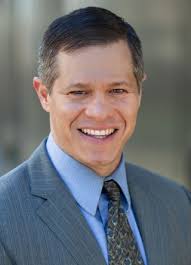Podcast: Play in new window | Download
Subscribe: Spotify | Email | TuneIn | RSS
There are two conflicting truths for many early-career graduate students:
- The mentor you choose is vitally important, and can impact your ability to complete a PhD and your career trajectory years into the future.
- Many students choose a mentor based on feelings, hunches, and hearsay.
Truth 1 should be self-evident by now. A mentor trains you, helps you develop a research program, and ultimately has a say in when and how you graduate.
Later, they will also write you letters of recommendation and speak with the search committee that may consider you for a faculty position.
Toxic mentor relationships have driven countless students away from science altogether, and healthy mentor relationships have acted as a springboard for fruitful research careers.
But what about Truth 2?
Given the importance of choosing a mentor, why do so many students ‘rely on their gut’ when making this life-altering decision?
This week, we talk with a scientist who has developed the tools and framework for making that choice more rigorous, and hopefully, more successful.

Finding Your Fit
Dr. Andres De Los Reyes has benefited from great mentorship throughout his scientific career. And that experience helped him develop the tools to aid every emerging scientist in their own journey.
He writes about those tools in his book The Early Career Researcher’s Toolbox: Insights Into Mentors, Peer Review, and Landing a Faculty Job.
Dr. De Los Reyes argues that there is no single mentor on earth who is right for every scientist. A student’s goals, personality, and training trajectory are unique, which means that finding the ‘right’ mentor is also individual.
But sorting the mentor needle from the University haystack can be difficult.
Dr. De Los Reyes recommends spending some time understanding which scientific questions really light your fire. He calls it your “burning question,” and understanding what drives your inquiry will help you identify a mentor that can support you.
According to Dr. De Los Reyes, “You might find somebody who does work aligned with that [burning] question. The degree to which you can pursue ideas and studies linked to that question is partially dependent on you, and very heavily dependent on who trains you.”
“Because we only get as much leeway to pursue our questions insofar as those who train us allow us to do so. And mentors vary considerably on how much independence they give to students to pursue questions.”
Seeing STARs
One of the tools in The Early Career Researcher’s Toolbox is called The STAR Framework. It’s a model to help students identify both their own needs and preferences, as well as a way to identify a mentor who will match.
STAR stands for Size, Time, Area, and Resources. A trainee can assess each element to determine whether the mentor can fill their particular need.
For example, ‘Time’ refers to “The quantity and quality of time a mentor spends meeting with their trainees.”
Some trainees may be new students, or postdocs entering a new field. They’ll need MORE time from the mentor for hands-on training, experimental design, or paper editing. If that mentor is extremely busy with a large lab, administrative work in the department, a full speaking schedule, and editorship at a journal, the trainee is going to feel ignored and left behind.
Conversely, a postdoc developing her own research program may need very little time from a mentor, and instead may value a mentor for the scientific network, access to equipment, or financial resources.
As you work through the STAR Framework, it becomes clear that one size does NOT fit all, and you’ll value the tools, worksheets, and sample emails contained in The Early Career Researcher’s Toolbox as you track down a mentor of your own.
Dr. De Los Reyes highlights the absolute importance of that key relationship this way:
“The person who is going to mentor you is your research parent. To a far greater extent than your institutional affiliation during grad school (which University confers your degree) that person is going to follow you for the duration of your existence. That person is going to vouch for you on letters of recommendation. That person is going to take the call from the chair of the search committee. That person plays a big role in how you pursue the work and whether you’re able to pursue the work.”
Hear more from Dr. De Los Reyes in Part 1 of this interview (135. The Science Training Toolbox with Dr. Andres De Los Reyes. Plus, Antiracism for Academia) or follow him on Twitter @JCCAP_Editor.

